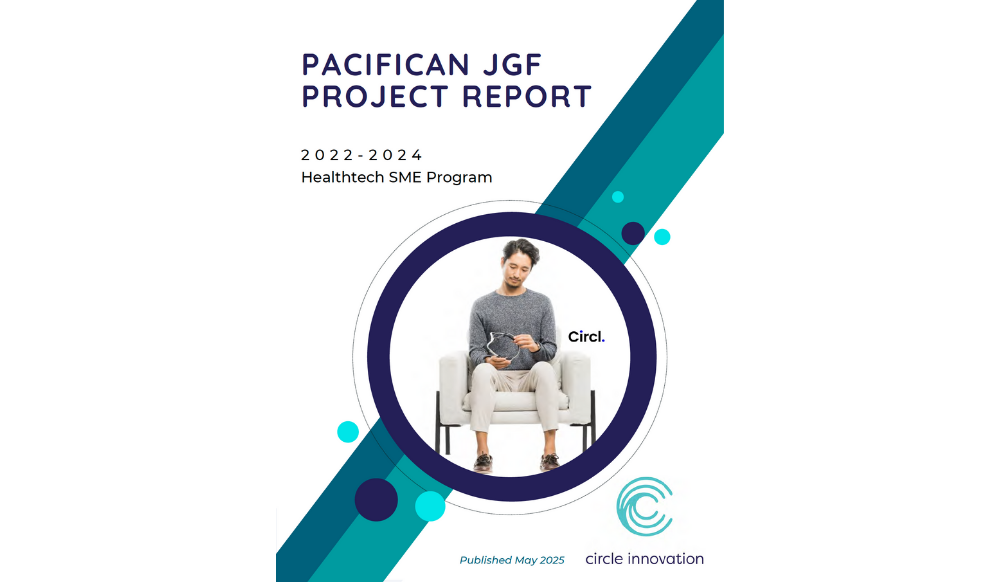Digital Health Circle’s CEO Sylvain Moreno and Board Chair (former B.C.) Premier Mike Harcourt had an opinion piece published in The Province on March 21, 2021.
Opinion: There is no putting the genie back in the bottle: Digital health is here to stay.
The article focuses on the digital transformation of health care in BC as a response to the COVID-19 pandemic. Digital health care is here to stay and is a driver of economic growth!
Read the article on the Province website. Text of the piece is also included below.
It’s been one year since we went into lockdown in B.C. due to COVID-19. And while the last 12 months have been devastating, we have borne witness to the birth of digital health in our home.
Changes for which consumers have been advocating for decades came to fruition in a matter of weeks and even days. The provincial government’s minister of health, Adrian Dix, has been quick to react and pave the way for virtual health consults to be implemented. It seemed like a small miracle in a sea of uncertainty and fear.
The digital transformation of health care is disruptive, complicated and often risky — all things that have made it difficult for policy-makers and health-care providers to embrace in the past. Trying something new means drawing attention to it, and if it doesn’t work, that is often seen by the public as a bigger failure than doing nothing. But accepting the risk is also the key to progress.
A new poll recently released by the Digital Health Circle and Research Co. demonstrated that over half of British Columbians (51 per cent) have essentially migrated to virtual care during the pandemic and plan to rely on digital tools more moving forward.
There is no putting the genie back in the bottle: Digital health is here to stay. Only 23 per cent of British Columbians think digital health tools are temporary and plan to go back to the way they accessed health care before the pandemic.
Of those using virtual care, on average, 81 per cent of British Columbians have been satisfied with their experience. Older adults (55-and-over) have been the most satisfied with digital health tools of any age group: 86 per cent of this group were very or moderately satisfied, refuting the stereotype that older adults aren’t as comfortable using digital tools. Rolling back digital health-care programs risks bearing the frustration of baby boomers and Generation X.
Many of the innovative digital health-care products being used are developed right here in B.C.
Ayogo is revolutionizing the treatment of kidney disease with patient-centred approaches. Human in Motion Robotics’ development “Exomotion” is a next-gen, wearable robotic exoskeleton that will allow those using wheelchairs, like those with paraplegia, to regain their mobility and independence. Cambian has developed solutions to address systemic flaws in processes for scheduling testing and immunization appointments — the consequences of which have been amplified during COVID-19. ALAViDA has created an on-demand smartphone-based substance-use support tool for front-line health workers in B.C.
These are just a few of the locally based digital health projects that Digital Health Circle, a Simon Fraser University-affiliated innovation hub, has collaborated on to create smart solutions that meet the needs of patients, health-care providers, caregivers and governments alike.
The global digital health-care market is expected to skyrocket over the next few years — to over US$833 billion by 2027, up from US$116 billion in 2019.
We have a significant opportunity to leverage the extensive resources already established in B.C. to spur the development of these technologies and services in the digital health sector, and to become a leader in this space.
With the right approach, and effective government investment, digital health can provide successful long-term solutions that help to improve the health and well-being of British Columbians — and beyond — while taking advantage of an unprecedented opportunity for our health care and tech economies to build back better.
It’s time for governments, health authorities and the private sector to keep the foot on the gas and continue pushing for more innovation to meet consumer demand.
This increased demand is providing B.C. with a real chance to address two of the pandemic’s most significant impacts: health and economic recovery. By supporting innovations developed here in B.C., we can achieve better health outcomes and create a new wave of well-paying tech and health-sector jobs.
Dr. Sylvain Moreno is chief executive officer and scientific director of Digital Health Circle, and a professor at SFU’s School of Interactive Arts and Technology. Mike Harcourt is a former premier of B.C., mayor of Vancouver and Vancouver city councillor. He is a Digital Health Circle board member.



